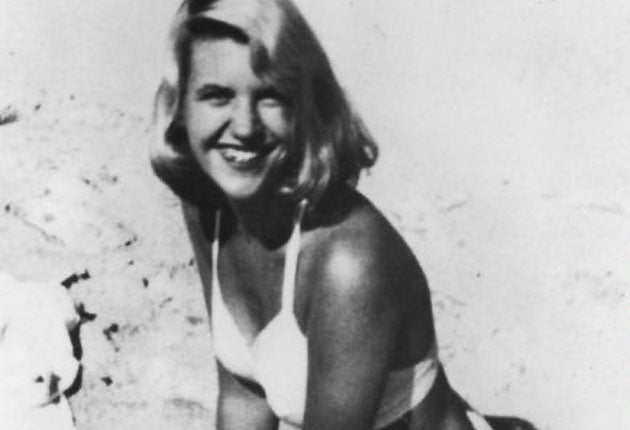This week's big questions: What is Sylvia Plath’s legacy? Is there such a thing as a good divorce?
This week's big questions are answered by Al Alvarez, the English poet, novelist and essayist. His latest book is Pondlife: A Swimmer’s Journal

As someone who knew Sylvia Plath well, how would you sum up her legacy?
I think she is by far the best of the poets of her generation. Ted Hughes wrote some brilliant poems when he started out and I am sure he helped Sylvia to find her voice, but in her last poems she went far beyond him, and the poems she wrote are extraordinary. In that last year before her suicide, as their marriage was breaking up, the flow deepened and the current ran faster.
After Ted left her for Assia, Sylvia moved back to London, to a flat just across Primrose Hill from where I lived, and started coming over regularly to read me the poems as she wrote them. One day, she read me what she called some “light verse”. She meant “Daddy” and “Lady Lazarus”. There was real venom in them, yet the underlying rhythm of “Daddy” is that of a lullaby, a lovesong. Plath had unleashed the powerful forces that had always been there at least since her childhood bereavement, but now with huge discipline and great artistry. I do not believe she meant to die. I think she expected to be found. She was too full of life and passion.
How much has the mythologising of Plath the person distracted attention from her work?
Plath the person is a fascinating subject but it has more or less nothing to do with the brilliance of the poems she wrote. It’s good if people are then led, if only by curiosity, to read her poems, but a terrible shame, and loss for them, if they are reading it only for the biographical content, rather than listening to what she has to say, and – more important – how she says it.
Does it matter what the cover of The Bell Jar looks like?
I suppose anything that gets them to read the book cannot be all bad.
You recently described much contemporary poetry as “second-hand”. What did you mean by that?
I’m afraid I seem to be no longer interested in contemporary poetry, so what do I know?
You wrote about divorce in your book Life After Marriage. When you look at the Chris Huhne-Vicky Pryce marital breakdown, is it possible to believe there is ever such a thing as a good divorce?
Oddly enough, except for the birth of our son, Adam, the divorce was the only decent thing that happened between me and my first wife.
Can good people be unfaithful?
It can happen. I’ve seen some marriages recover. Many only seem to recover but the damage stays, and, of course, many never recover. A few seem to make it through in a real way.
You are 83 now and your new book to some extent chronicles the trials of ageing. As a society, how do we rate in the way we look after older people?
Like the Americans in the past, we idealise youthfulness and have a certain contempt for the aged. Yet in Manhattan a couple of years ago, everyone was enormously helpful when they saw me in a wheelchair. But try going to an exhibition in London in a wheelchair. Nobody moves out of the way, to let you see, unless they are American or European. Not the Brits!
Would you recommend swimming outdoors – as you have done regularly – as a good way to keep the ageing process at bay?
I can’t think of a better way. I’ve never been able to bear chlorinated pools, and the experience of being out in the open and free to discover what is out there to see – wild birds, wild weather, and wild swimmers – is great.
From poker to rock-climbing, you’ve looked for risk in your life. Is risk at risk of being legislated out of existence?
Yes, I had a huge amount of fun as a child, diving. I remember the first time I saw someone dive when I was 10. I was at Finchley Road baths, after a decade of relative disability, and seeing this guy doing what looked like impossible things on the high board. So, lo and behold, I went on to the high board that day and gave it a shot. There weren’t all these damned rules in those days, and nobody stopped me. At school, I went on to win prizes for diving. If we remove all the risk, we kill all the fun.
Al Alvarez’s ‘Pondlife: A Swimmer’s Journal’ is published by Bloomsbury
Join our commenting forum
Join thought-provoking conversations, follow other Independent readers and see their replies
Comments
Bookmark popover
Removed from bookmarks